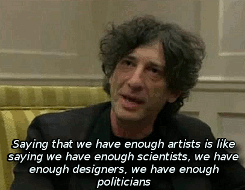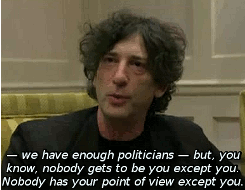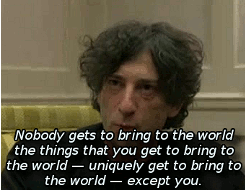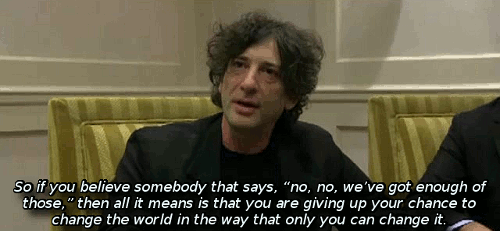I Think The Hunger Games Series Sits In A Similar Literary Position To The Lord Of The Rings, As A Piece
I think the Hunger Games series sits in a similar literary position to The Lord of the Rings, as a piece of literature (by a Catholic author) that sparked a whole new subgenre and then gets blamed for flaws that exist in the copycat books and aren’t actually part of the original.
Like, despite what parodies might say, Katniss is nowhere near the stereotypical “unqualified teenager chosen to lead a rebellion for no good reason”. The entire point is that she’s not leading the rebellion. She’s a traumatized teenager who has emotional reactions to the horrors in her society, and is constantly being reined in by more experienced adults who have to tell her, “No, this is not how you fight the government, you are going to get people killed.” She’s not the upstart teenager showing the brainless adults what to do–she’s a teenager being manipulated by smarter and more experienced adults. She has no power in the rebellion except as a useful piece of propaganda, and the entire trilogy is her straining against that role. It’s much more realistic and far more nuanced than anyone who dismisses it as “stereotypical YA dystopian” gives it credit for.
And the misconceptions don’t end there. The Hunger Games has no “stereotypical YA love triangle”–yes, there are two potential love interests, but the romance is so not the point. There’s a war going on! Katniss has more important things to worry about than boys! The romance was never about her choosing between two hot boys–it’s about choosing between two diametrically opposed worldviews. Will she choose anger and war, or compassion and peace? Of course a trilogy filled with the horrors of war ends with her marriage to the peace-loving Peeta. Unlike some of the YA dystopian copycats, the romance here is part of the message, not just something to pacify readers who expect “hot love triangles” in their YA.
The worldbuilding in the Hunger Games trilogy is simplistic and not realistic, but unlike some of her imitators, Collins does this because she has something to say, not because she’s cobbling together a grim and gritty dystopia that’s “similar to the Hunger Games”. The worldbuilding has an allegorical function, kept simple so we can see beyond it to what Collins is really saying–and it’s nothing so comforting as “we need to fight the evil people who are ruining society”. The Capitol’s not just the powerful, greedy bad guys–the Capitol is us, First World America, living in luxury while we ignore the problems of the rest of the world, and thinking of other nations largely in terms of what resources we can get from them. This simplistic world is a sparsely set stage that lets us explore the larger themes about exploitation and war and the horrors people will commit for the sake of their bread and circuses, meant to make us think deeper about what separates a hero from a villain.
There’s a reason these books became a literary phenomenon. There’s a reason that dozens upon dozens of authors attempted to imitate them. But these imitators can’t capture that same genius, largely because they’re trying to imitate the trappings of another book, and failing to capture the larger and more meaningful message underneath. Make a copy of a copy of a copy, and you’ll wind up with something far removed from the original masterpiece. But we shouldn’t make the mistake of blaming those flaws on the original work.
More Posts from Sumiresiel and Others
Imagine if King Charles III started singing You'll Be Back rn
I want some nice cereal
During the most poor and homeless period of my life, I had a lot of people get angry with me because I spent $25 on Bath and Body Works candles during a sale. They couldn’t comprehend why the hell I would do that when I had been fighting for months to try and get us on our feet, afford food, and have an apartment to live in.
Those candles were placed beside wherever I slept that night. In the morning, I would move them and set them wherever I’d have to hang out. At one point I carried one around in my purse - one of those big honking 3-wick candles. I never lit them, but I’d open them and smell them a lot.
I credit that purchase with a lot of my drive that got me to where I am today. I had been working tirelessly, 15+ hour days with barely any reward, constantly on the phone or trying to deal with organizations and associations to “get help at”. It’d gone on for almost a year by the end of it, and I was so burnt out, to the point that I would shake 24/7. But I could get a bit of relief from my 3-wick “upper middle class lifestyle” candles. They represented my future goals, my home I wanted to decorate, and how I would one day not be in this mess anymore.
When we moved into the apartment, and our financial status improved, I burned those candles every single day. When they were empty, I cleaned them out, stuck labels on them, and they became the starting point of my really cute organization system I had ALWAYS planned to have.
So whenever I hear about someone very poor getting themselves a treat - maybe it’s Starbucks, maybe it’s a home deco item, maybe it’s a video game… I don’t judge them. I get it. I get that you can’t go without anything for that long without it making you go crazy. You need to pull some joy, inspiration, and motivation from somewhere.
My existence is nihility
Reblog if you have not been booped yet
I'm sorry Sony but you gotta drink some liquid uranium
People often say LOTR is a story about hope. (I'm reminded of it because someone said it in the notes of my Faramir post.) And that's true, but it's not the whole picture: LOTR is in large part a story about having to go on in the absence of hope.
Frodo has lost hope, as well as the ability to access any positive emotion, by Return. He is already losing it in Towers: he keeps going through duty and determination and of course Sam's constant help.
For most of the story, Sam is fueled by hope, which is why it's such a huge moment when he finally lets go of the hope of surviving and returning home, and focuses on making it to the Mountain. To speed their way and lighten the load, he throws his beloved pots and pans into a pit, accepting that he will never cook, or eat, again.
When Eowyn kills the Witch King, she's beyond hope and seeking for a glorious death in battle. It's possible that in addition to her love and loyalty for Théoden, she's strengthened by her hopelessness, the fear of the Nazgúl cannot touch someone who's already past despair.
Faramir is his father's son, he doesn't have any more hope of Gondor's victory or survival than Denethor does, he says as much to Frodo. What hope have we? It is long since we had any hope. ... We are a failing people, a springless autumn. He knows he's fighting a losing war and it's killing him. When he rejects the ring, he doesn't do it in the hope that his people can survive without it, he has good reason to believe they cannot. He acts correctly in the absence of hope.
Of course LOTR has a (mostly) happy ending, all the unlikely hopes come true, the characters who have lost hope gain what they didn't even hope for, and everyone is rewarded for their bravery and goodness, so on some level the message is that hope was justified. But the book never chastises characters who lost hope, it was completely reasonable of them to do so. Despair pushed Théoden and Denethor into inaction, pushed Saruman into collaboration, but the characters who despaired and held up under the weight of despair are Tolkien's real heroes.
(In an early draft of Return, Frodo and Sam receive honorary titles in Noldorin: Endurance beyond Hope and Hope Unquenchable, respectively. Then he cut it, probably because it was stating the themes of the entire book way too obviously, because this is what Tolkien cared about, really: enduring beyond hope. Without hope.)
Also, people who know more than me about the concept of estel, feel free to @ me.
one of my worst writing sins is abusing my power to create compound words. i cannot write the sentence "The sun shone as bright as honey that afternoon." no. that's boring. "The sun was honey-bright that afternoon" however? yes. that sentence is dope as fuck. i do not care if "honey-bright" is a word in the english dictionary. i do not care if the sentence is grammatically correct. i will not change. i will not correct my erred ways. the laws of the english language are mine.
What if God was an agender aromantic asexual aplatonic entity







Neil Gaiman’s Advice to Aspiring Artists
The Autistic Urge to Study Other People and Society…







Neurodivergent_lou
For freedom and liberty
pspspsps come collect ur bot slayer badge


-
 characterarc reblogged this · 1 week ago
characterarc reblogged this · 1 week ago -
 whitegownsandflowercrowns liked this · 1 week ago
whitegownsandflowercrowns liked this · 1 week ago -
 scywritesbynight liked this · 1 week ago
scywritesbynight liked this · 1 week ago -
 homo-clexual reblogged this · 1 week ago
homo-clexual reblogged this · 1 week ago -
 esotericareblogged reblogged this · 1 week ago
esotericareblogged reblogged this · 1 week ago -
 skyfalcon222 reblogged this · 1 week ago
skyfalcon222 reblogged this · 1 week ago -
 okra-sama reblogged this · 2 weeks ago
okra-sama reblogged this · 2 weeks ago -
 tototoaba liked this · 2 weeks ago
tototoaba liked this · 2 weeks ago -
 amitysnark liked this · 2 weeks ago
amitysnark liked this · 2 weeks ago -
 bread-clown reblogged this · 2 weeks ago
bread-clown reblogged this · 2 weeks ago -
 schniggles liked this · 2 weeks ago
schniggles liked this · 2 weeks ago -
 shipptowreck liked this · 2 weeks ago
shipptowreck liked this · 2 weeks ago -
 manygreetingsfriend liked this · 2 weeks ago
manygreetingsfriend liked this · 2 weeks ago -
 aphiordie reblogged this · 2 weeks ago
aphiordie reblogged this · 2 weeks ago -
 aphiordie liked this · 2 weeks ago
aphiordie liked this · 2 weeks ago -
 toph-proudfoot reblogged this · 2 weeks ago
toph-proudfoot reblogged this · 2 weeks ago -
 killinguwithumbrellas reblogged this · 2 weeks ago
killinguwithumbrellas reblogged this · 2 weeks ago -
 magnetothemagnificent liked this · 2 weeks ago
magnetothemagnificent liked this · 2 weeks ago -
 jewishbuckybarnes reblogged this · 2 weeks ago
jewishbuckybarnes reblogged this · 2 weeks ago -
 dame-night reblogged this · 2 weeks ago
dame-night reblogged this · 2 weeks ago -
 fangoddess555 liked this · 2 weeks ago
fangoddess555 liked this · 2 weeks ago -
 autumn-mirrorball liked this · 3 weeks ago
autumn-mirrorball liked this · 3 weeks ago -
 the-glitchh liked this · 3 weeks ago
the-glitchh liked this · 3 weeks ago -
 waywardstoryenthusiast reblogged this · 3 weeks ago
waywardstoryenthusiast reblogged this · 3 weeks ago -
 paxwingscale reblogged this · 3 weeks ago
paxwingscale reblogged this · 3 weeks ago -
 sweetgentlecider reblogged this · 3 weeks ago
sweetgentlecider reblogged this · 3 weeks ago -
 impatiensdesigns liked this · 3 weeks ago
impatiensdesigns liked this · 3 weeks ago -
 pojjer1059 reblogged this · 4 weeks ago
pojjer1059 reblogged this · 4 weeks ago -
 maybeaghost reblogged this · 4 weeks ago
maybeaghost reblogged this · 4 weeks ago -
 actuallyprobablyafaerie reblogged this · 4 weeks ago
actuallyprobablyafaerie reblogged this · 4 weeks ago -
 mako-lies reblogged this · 4 weeks ago
mako-lies reblogged this · 4 weeks ago -
 sunflower-will-flay-your-soul reblogged this · 1 month ago
sunflower-will-flay-your-soul reblogged this · 1 month ago -
 bird599 liked this · 1 month ago
bird599 liked this · 1 month ago -
 artemisadiadoom liked this · 1 month ago
artemisadiadoom liked this · 1 month ago -
 tinynavajoreads reblogged this · 1 month ago
tinynavajoreads reblogged this · 1 month ago -
 tinynavajo liked this · 1 month ago
tinynavajo liked this · 1 month ago -
 sunflower-will-flay-your-soul liked this · 1 month ago
sunflower-will-flay-your-soul liked this · 1 month ago -
 risecupcake liked this · 1 month ago
risecupcake liked this · 1 month ago -
 caffeinated-bibliophile reblogged this · 1 month ago
caffeinated-bibliophile reblogged this · 1 month ago -
 pandoratheprocrasticreator liked this · 1 month ago
pandoratheprocrasticreator liked this · 1 month ago -
 kepler-438-b reblogged this · 1 month ago
kepler-438-b reblogged this · 1 month ago -
 recipeformemory reblogged this · 1 month ago
recipeformemory reblogged this · 1 month ago -
 hagelliot reblogged this · 1 month ago
hagelliot reblogged this · 1 month ago -
 sharpsparrow96 reblogged this · 1 month ago
sharpsparrow96 reblogged this · 1 month ago -
 marbylous liked this · 1 month ago
marbylous liked this · 1 month ago -
 ardentdelirium liked this · 1 month ago
ardentdelirium liked this · 1 month ago -
 midlifecrisis2021 reblogged this · 1 month ago
midlifecrisis2021 reblogged this · 1 month ago -
 midlifecrisis2021 liked this · 1 month ago
midlifecrisis2021 liked this · 1 month ago -
 epiclids reblogged this · 1 month ago
epiclids reblogged this · 1 month ago

Promise me an endless eternity She/Her/They/Them Lives in the shadow of nihility Cat and Dog Person Writer and Artist I guess Commission me for anything I need money
58 posts